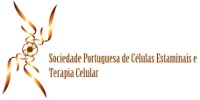Prof. S. Mantalaris
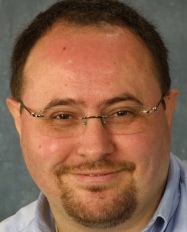 Sakis Mantalaris holds a PhD degree in Chemical Engineering from the University of Rochester in 2000. He was appointed Governor’s Lecturer at the Department of Chemical Engineering at Imperial College in 2000 and was promoted to Professor in Biosystems Engineering in 2010. His research interests are in the areas in stem cell bioprocessing & tissue engineering with a focus on 3D culture systems and bioreactor development. His work on pluripotent stem cell bioprocessing has resulted in the development of a novel perfusion bioreactor that has been utilised to expand ESCs and differentiate them to a variety of cell lineages. His work with haematopoetic stem cells has resulted in the creation of biomimetic scaffolds to support normal and abnormal haematopoiesis ex vivo in both static and perfusion cultures and the development of a novel three-dimensional hollow fibre bioreactor. Prof Mantalaris has recieved numerous awards and in 2012 was elected Fellow of American Institute for Medical & Biological Engineering. He has published over 100 peer-reviewed journal publications and is cofounder of NovaThera, a company that manufactures his bioreactor designs.
Sakis Mantalaris holds a PhD degree in Chemical Engineering from the University of Rochester in 2000. He was appointed Governor’s Lecturer at the Department of Chemical Engineering at Imperial College in 2000 and was promoted to Professor in Biosystems Engineering in 2010. His research interests are in the areas in stem cell bioprocessing & tissue engineering with a focus on 3D culture systems and bioreactor development. His work on pluripotent stem cell bioprocessing has resulted in the development of a novel perfusion bioreactor that has been utilised to expand ESCs and differentiate them to a variety of cell lineages. His work with haematopoetic stem cells has resulted in the creation of biomimetic scaffolds to support normal and abnormal haematopoiesis ex vivo in both static and perfusion cultures and the development of a novel three-dimensional hollow fibre bioreactor. Prof Mantalaris has recieved numerous awards and in 2012 was elected Fellow of American Institute for Medical & Biological Engineering. He has published over 100 peer-reviewed journal publications and is cofounder of NovaThera, a company that manufactures his bioreactor designs.
Prof. Juan A. Bueren
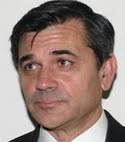 Juan Bueren received his PhD at the Complutense University of Madrid in 1982. During his distinguished carreer he has led more that 30 research projects, directed 11 PhD thesis and published more than 100 peer reviewed articles in international journals. His research interests are on gene therapy, hematopoietic stem cells and cell reprogramming, with particular focus on Fanconi’s Anemia. He has made outstanding contribution to our understanding of the molecular basis of the disease and towards the development of improved therapies based on genetic correction and transplantation of HSCs. He has received the International Foundation for Fanconi Anemia (FARF) Award in recognition of his research and attention to families affected by Fanconi Anemia. (2004). His work resulted in the designation of the FANCA-lentiviral vector as an Orphan Drug for the treatment of Fanconi anemia patients type A (2010). He is currently the Head of the Hematopoietic Innovative Division at the Centro de Investigaciones Energéticas, Medioambientales y Tecnológicas (CIEMAT) and Biomedical Centre for Research on Rare Diseases (CIBERER). He is a corresponding member of the Academy of Pharmacy of Galicia (2006) and the Royal Academy of Pharmacy of Spain (2008). He has coordinated 9 European projects in the fields of stem cells and gene therapy and is currently the Coordinator of the Spanish Consortium on Fanconi’s anemia, founded by the Ministry of Health and Genoma España (2007), as well as Scientific Coordinator of the FP7 European Project EUROFANCOLEN. He is currently the President of the Spanish Society for Gene and Cell Therapy (2009).
Juan Bueren received his PhD at the Complutense University of Madrid in 1982. During his distinguished carreer he has led more that 30 research projects, directed 11 PhD thesis and published more than 100 peer reviewed articles in international journals. His research interests are on gene therapy, hematopoietic stem cells and cell reprogramming, with particular focus on Fanconi’s Anemia. He has made outstanding contribution to our understanding of the molecular basis of the disease and towards the development of improved therapies based on genetic correction and transplantation of HSCs. He has received the International Foundation for Fanconi Anemia (FARF) Award in recognition of his research and attention to families affected by Fanconi Anemia. (2004). His work resulted in the designation of the FANCA-lentiviral vector as an Orphan Drug for the treatment of Fanconi anemia patients type A (2010). He is currently the Head of the Hematopoietic Innovative Division at the Centro de Investigaciones Energéticas, Medioambientales y Tecnológicas (CIEMAT) and Biomedical Centre for Research on Rare Diseases (CIBERER). He is a corresponding member of the Academy of Pharmacy of Galicia (2006) and the Royal Academy of Pharmacy of Spain (2008). He has coordinated 9 European projects in the fields of stem cells and gene therapy and is currently the Coordinator of the Spanish Consortium on Fanconi’s anemia, founded by the Ministry of Health and Genoma España (2007), as well as Scientific Coordinator of the FP7 European Project EUROFANCOLEN. He is currently the President of the Spanish Society for Gene and Cell Therapy (2009).
Prof. Clemens A. van Blitterswijk
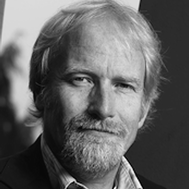 Prof. Dr. Clemens A. van Blitterswijk (1957) is currently Professor of Tissue Regeneration at Twente University in the Netherlands where he heads one of the leading European labs in the field of Tissue Engineering and Regenerative Medicine. During his career he has authored over 300 scientific papers, directed over 50 PhD students, filed over a 100 patents and recived numerous recognitions and awards, including the Jean Leray award (European Society for Biomaterials), the Marie Parijs award (University of Leiden), the Klein award (University of Utrecht), and more recently, the George Winter award of the European Society for Biomaterials. In addition to his scientific research, Dr. van Blitterswijk has co-founded multiple biomedical companies. Resulting from his work 10 implant technologies were brought into clinical evaluation in humans. He holds 3 board positions in biomedical start-ups. He currently acts as Chairman of the Netherlands Forum for Regenerative Medicine andf is a member of the Advisory Board of the Netherlands Technology Foundation, and the Netherlands Academy for Technology and Innovation. He is also a founding member of the LSP-Health Economics Fund (LSP-HEF), a new private equity fund for investments in mature innovative medical technology companies.
Prof. Dr. Clemens A. van Blitterswijk (1957) is currently Professor of Tissue Regeneration at Twente University in the Netherlands where he heads one of the leading European labs in the field of Tissue Engineering and Regenerative Medicine. During his career he has authored over 300 scientific papers, directed over 50 PhD students, filed over a 100 patents and recived numerous recognitions and awards, including the Jean Leray award (European Society for Biomaterials), the Marie Parijs award (University of Leiden), the Klein award (University of Utrecht), and more recently, the George Winter award of the European Society for Biomaterials. In addition to his scientific research, Dr. van Blitterswijk has co-founded multiple biomedical companies. Resulting from his work 10 implant technologies were brought into clinical evaluation in humans. He holds 3 board positions in biomedical start-ups. He currently acts as Chairman of the Netherlands Forum for Regenerative Medicine andf is a member of the Advisory Board of the Netherlands Technology Foundation, and the Netherlands Academy for Technology and Innovation. He is also a founding member of the LSP-Health Economics Fund (LSP-HEF), a new private equity fund for investments in mature innovative medical technology companies.
Prof. Ibrahim Domian
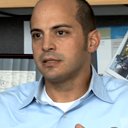 Ibrahim Domian obtained his MD/PhD training at Stanford University School of Medicine. Upon completion of his M.D. training, he served as a medical intern, resident, and cardiology fellow at the Massachusetts General Hospital (MGH). For his postdoctoral research training, Dr. Domian worked with Dr. Kenneth Chien and developed a transgenic murine system to isolate distinct populations of cardiac progenitor cells from embryonic stem cells and the developing embryos. In July of 2008, Dr. Domian became a staff cardiologist and principal investigator at the Cardiovascular Research Center at the MGH. His laboratory is focused on adapting findings of basic developmental and stem cell biology to translational cardiovascular medicine.
Ibrahim Domian obtained his MD/PhD training at Stanford University School of Medicine. Upon completion of his M.D. training, he served as a medical intern, resident, and cardiology fellow at the Massachusetts General Hospital (MGH). For his postdoctoral research training, Dr. Domian worked with Dr. Kenneth Chien and developed a transgenic murine system to isolate distinct populations of cardiac progenitor cells from embryonic stem cells and the developing embryos. In July of 2008, Dr. Domian became a staff cardiologist and principal investigator at the Cardiovascular Research Center at the MGH. His laboratory is focused on adapting findings of basic developmental and stem cell biology to translational cardiovascular medicine.
Prof. Richard Oreffo
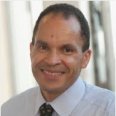 Professor Richard Oreffo holds the chair of Musculoskeletal Science and is co-founder of the Centre for Human Development, Stem Cells and Regeneration at the niversity of Southampton, UK. He is also Associate Dean Enterprise for the Faculty of Medicine. Dr Orfeo leads the Bone and Joint Research Group based at the Institute of Developmental Sciences, Southampton General Hospital. He has extensive expertise in skeletal biology and the mechanisms involved in skeletal stem cell differentiation His group is focused on understanding bone development and developing strategies to regenerate bone and cartilage using stem cell technology and innovative scaffolds for orthopaedic application. He has published more than 150 peer-reviewed papers.
In 2001 Dr Oreffo was recognised with the Maxime Hanns award for collaborative research in Bone Tissue Engineering, appointed to a Senior Lectureship in 2002 and to a Readership and Personal chair in 2004. In 2008 he was appointed to the Research Council for Health of the Academy of Finland and is a member of the BBSRC Healthy Organism Panel (Deputy Chair), ARC Research Committee and UK National Stem Cell Network Advisory Committee.
Professor Richard Oreffo holds the chair of Musculoskeletal Science and is co-founder of the Centre for Human Development, Stem Cells and Regeneration at the niversity of Southampton, UK. He is also Associate Dean Enterprise for the Faculty of Medicine. Dr Orfeo leads the Bone and Joint Research Group based at the Institute of Developmental Sciences, Southampton General Hospital. He has extensive expertise in skeletal biology and the mechanisms involved in skeletal stem cell differentiation His group is focused on understanding bone development and developing strategies to regenerate bone and cartilage using stem cell technology and innovative scaffolds for orthopaedic application. He has published more than 150 peer-reviewed papers.
In 2001 Dr Oreffo was recognised with the Maxime Hanns award for collaborative research in Bone Tissue Engineering, appointed to a Senior Lectureship in 2002 and to a Readership and Personal chair in 2004. In 2008 he was appointed to the Research Council for Health of the Academy of Finland and is a member of the BBSRC Healthy Organism Panel (Deputy Chair), ARC Research Committee and UK National Stem Cell Network Advisory Committee.

